Our Founder
In the beginning....
Significant events in the life of the Founder - St John Baptist De La Salle
“To touch the hearts of your students is the
greatest miracle you can perform.” (Med 139.3
– feast of St Peter)1
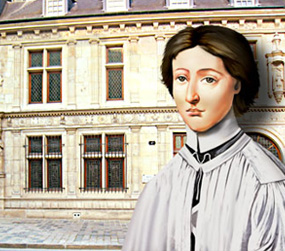
A Privileged Childhood The young De La Salle as a Canon, in front of his birth home. Today it is a De La Salle Museum and a small group of brothers live there. |
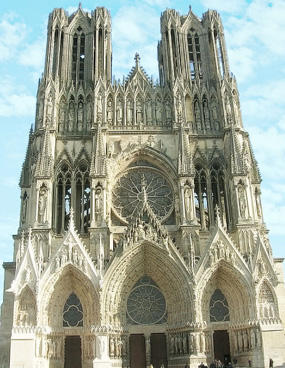
An Erudite Education The grand Cathedral in Reims where De La Salle spent 16 years as a canon and then as a priest. |
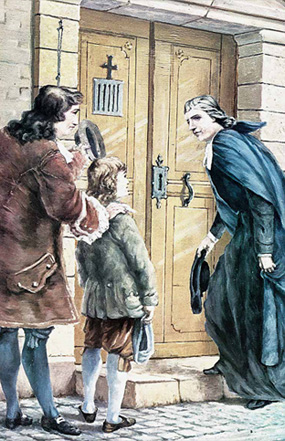
Adrian Nyel introduced De La Salle into starting a school (March 15 1679) Adrian Nyel met De La Salle at the door of the Motherhouse of the Sisters of the Child Jesus. |
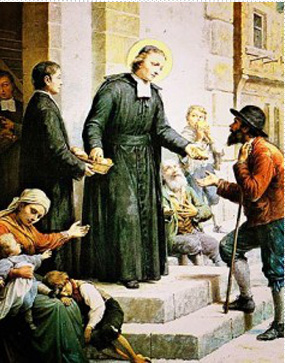
De La Salle took in the teachers and instructed them (1683) De La Salle used his inheritance to feed the poor. |
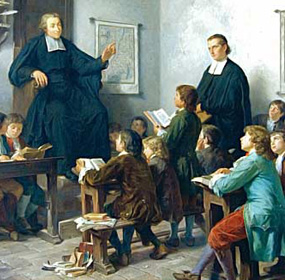
Growth of the Brothers of the Christian Schools “Show much kindness and love for the young people you teach.” (Med 134.2—on St. Barnabas) |
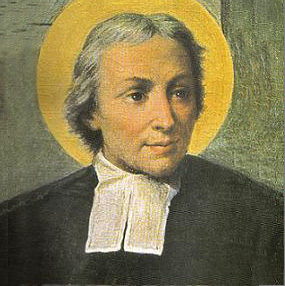
The legacy of St John Baptist De La Salle “I will continue, O my God, to do all my actions for the love of you.” |
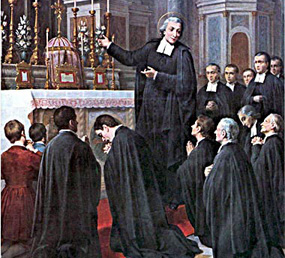
De La Salle found the Brothers of the Christian Schools (1686) De La Salle and the Brothers take their first vows on Trinity Sunday, 1686. |

